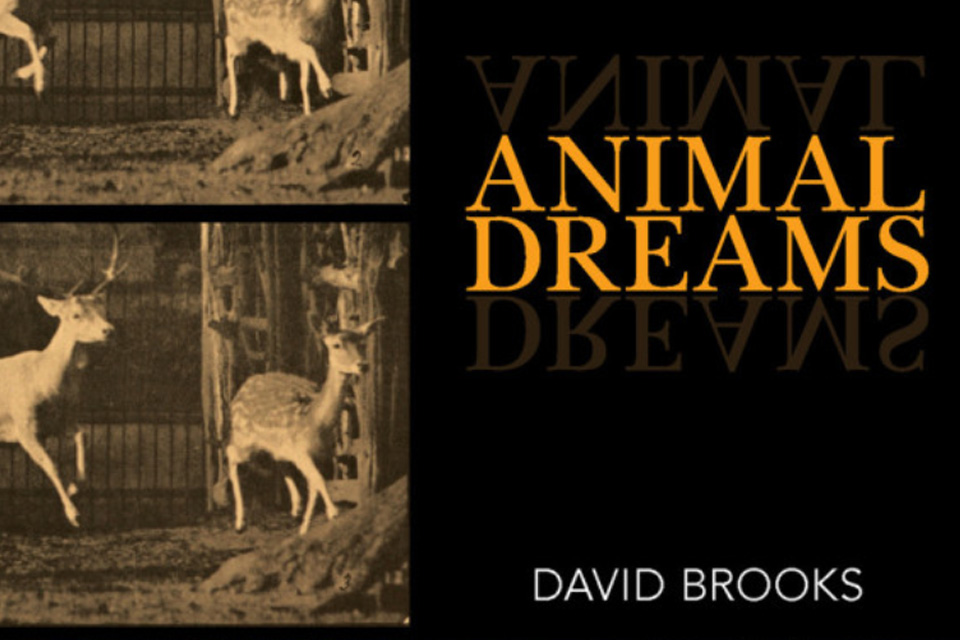We knew of the remarkable career of the Australian poet, essay, and novelist David Brooks, but only met him after Animal Wellness Action’s sister organization, the Center for a Humane Economy, launched its “Kangaroos Are Not Shoes” campaign. He and Jeffrey Masson, also a best-selling author, based in Australia, wrote an essay about the commercial slaughter of kangaroos for use in global commerce. Here’s the start of their essay:
“Kangaroos, like humans, have two eyes, two ears, and a nose, nurture their babies and are in so many other ways just like us. It could be argued that they must have minds very much like our own, filled with feelings just as ours are. Even for those who care about kangaroos, however, too few are aware of the terrible fate many of them suffer due to one seemingly innocuous product: soccer shoes.”
As you’ll learn from our interview, David Brooks turned his immense talents to the cause of stopping the largest slaughter of wildlife on the planet, occurring in his native nation. In Animal Dreams, his new volume of 17 essays, David Brook travels beyond the nocturnal adventures that might occupy the sleep of our non-human sojourners. Rather, many essays focus on the way humans regard animals in writing, painting, and photography — and in our basic worldview. It should not surprise us that the type of cruelty and utilitarianism characterizing humanity’s engagement with other creatures finds it mate, if not its parent, in the world of ideas. A paragraph from the first essay in the book, “The Smoking Vegetarian,” lays it out for the reader:
“My account of the absolute pervasiveness of the animal in human material culture (i.e. of the non-human animal in human-animal culture) is to preface the point that the suffering, subjugation and debasement of such animals are just as pervasive in the world of thought as in the world of things — a pervasion the apprehension of which, hard enough in the first place, is rendered all the more difficult firstly because it is a matter less of active thought-against, as in overt proscriptions of non-human animals or injunctions to animal cruelty, than it is of blindness to them ….
Any serious movement must have intellectual pioneers who reframe the way the whole of society sees the world. When it comes to seeing animals in a new way, our cause is indeed lucky to have David Brooks. Check out episode 26 of the Animal Wellness Podcast: David Brooks on his new book, “Animal Dreams” by clicking here.
Wayne Pacelle is the founder of Animal Wellness Action, president of the Center for a Humane Economy. The Non-Profit Times named him seven times as one of the nation’s top 50 non-profit executives, and in 2005, he was named executive of the year. Pacelle is a two-time New York Times bestselling author of The Bond, and The Humane Economy.
Marty Irby is the executive director at Animal Wellness Action. Irby worked in the United States House of Representatives for Congressman Ed Whitfield (R-KY). He is a former president of the Tennessee Walking Horse Breeders’ and Exhibitors’ Association. Irby was named by The Hill as one of nation’s Top Lobbyists for 2019 and 2020 and honored by Her Majesty, Queen Elizabeth, II in 2020 for his work to protect animals.
Joseph Grove is a freelance writer and six-time recipient of awards from the Society of Professional Journalists. His background also includes hosting a radio show called Jargon on WQMF FM in Louisville, Ky., and podcasts for Bisig Impact Group and Southern Gaming and Destinations. He began dedicating his volunteer time to animal issues in 2014 and currently works as a court-appointed special advocate for children in family court in Shelby and Spencer Counties in Kentucky.
